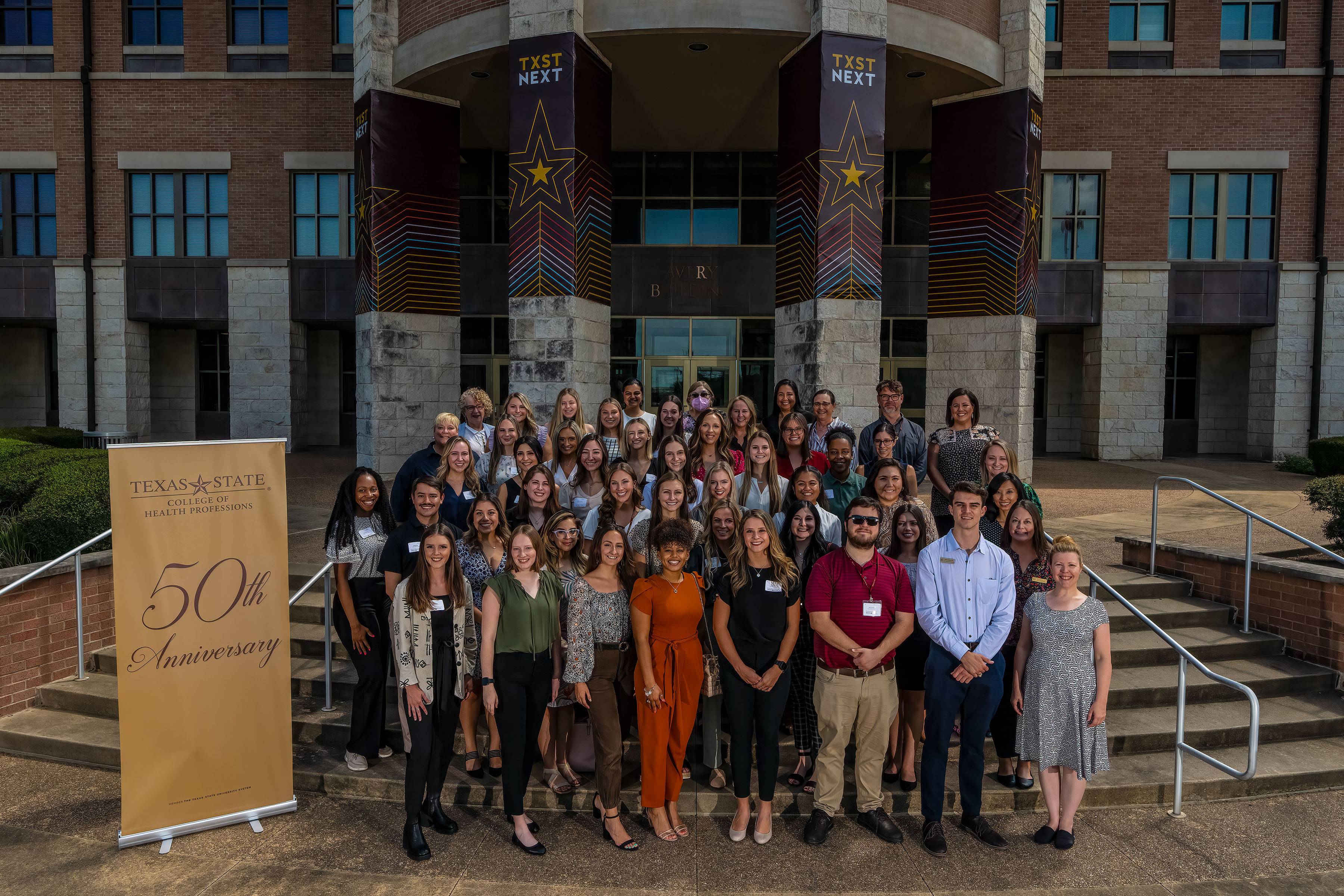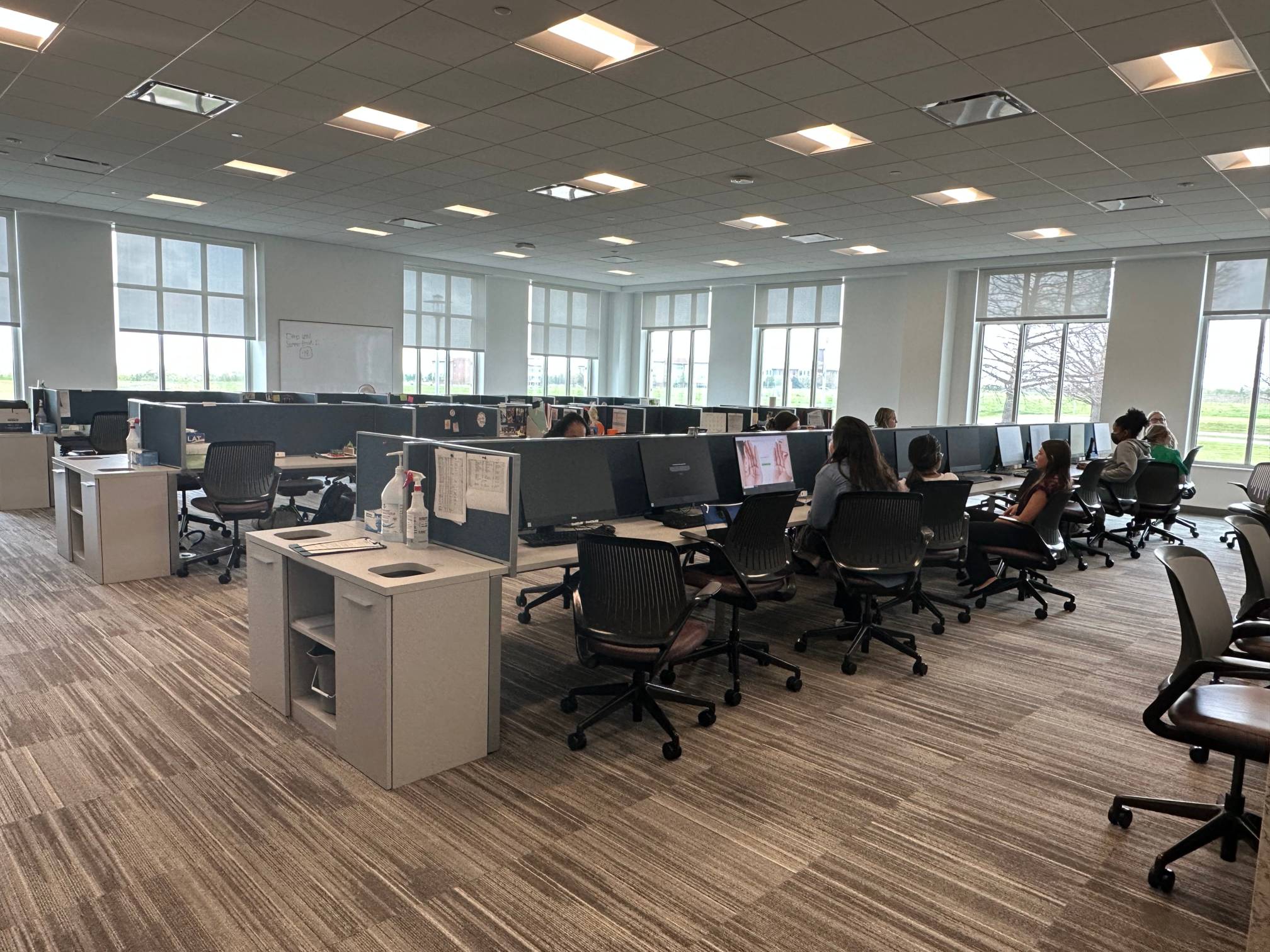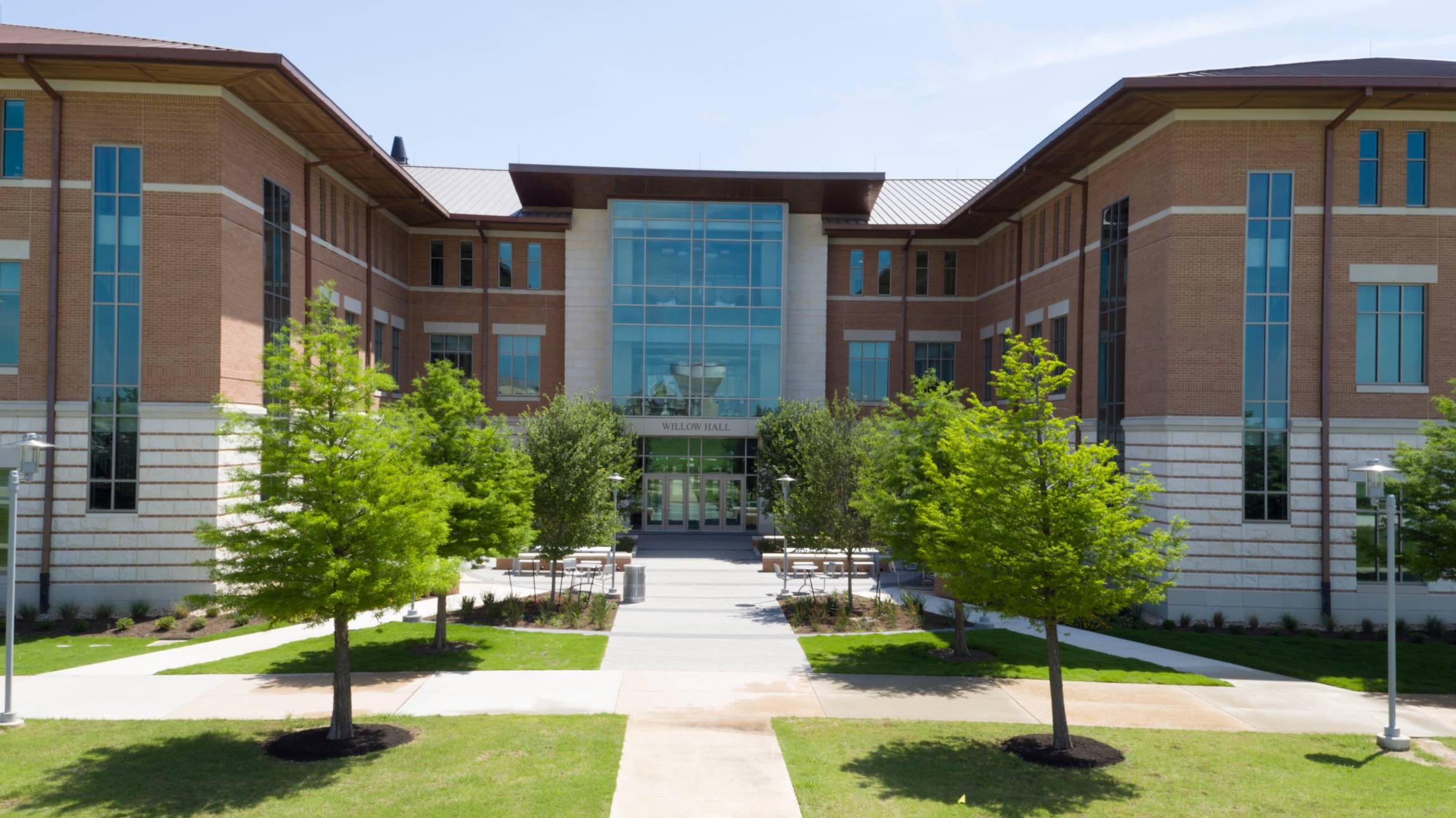Graduate Degree Program
Degrees Offered: Master of Arts/Master of Science in Communication Disorders, (M.A.C.D., M.S.C.D.)

The Department of Communication Disorders offers the Master of Science in Communication Disorders (M.S.C.D.) with a major in communication disorders and the Master of Arts (M.A.) with a major in communication disorders. The time to degree may vary, depending on the undergraduate background of a student, but the M.S.C.D. requires a minimum of 36 academic hours, with 27 hours in the communication disorders major, nine hours in an approved concentrate, plus a clinical practicum each term enrolled. The M.A. requires a minimum of 39 academic hours, with 27 hours in the communication disorders major, six hours of thesis, six hours in an approved concentrate, plus a clinical practicum each term enrolled. The graduate program in Communication Disorders is a full-time, face-to-face program that is typically completed in 6 terms (two fall semesters, two spring semesters, and two 5-week summer terms).
The major in communication disorders is clinically oriented and is designed to prepare clinicians for employment in hospitals, clinics, private practice, and public schools. The program meets the minimum education and clinical requirements for state licensure as a speech-language pathologist and for the Certificate of Clinical Competence in Speech-Language Pathology awarded by the American Speech-Language-Hearing Association (ASHA). The master's program in speech-language pathology at Texas State University is accredited by the Council on Academic Accreditation in Audiology and Speech-Language Pathology (CAA) of the American Speech-Language-Hearing Association, 2200 Research Boulevard #310, Rockville, Maryland 20850, 800-498-2071 or 301-296-5700.
Candidates for the Communication Disorders master’s degree are encouraged to earn a passing score on the Praxis Examination in Speech-Language Pathology before graduation and substitute a passing score for the required departmental graduate comprehensive examination.
Click here to view the Graduate Course Sequence

Admission Policy
For information regarding admission application requirements and deadlines, please visit our website at http://www.gradcollege.txstate.edu/programs/cdis.html
Meeting admission requirements for The Graduate College and the Department of Communication Disorders DOES NOT GUARANTEE admission to the graduate sequence in communication disorders.
For any questions or more information on this program, please send emails to: cdisgradprog@txstate.edu
The number of hours of background work required is determined in consultation with the Communication Disorders Undergraduate/Leveling Advisor and is dependent on the courses taken at the undergraduate level. For those with a degree in other majors, please refer to the Leveling Course Sequence located on the Department of Communication Disorders website. Upon completion of the required background work (leveling), applicants may apply for admission to the regular graduate sequence for a fall term using this same packet with the Jan 31st deadline. Completion of the background requirements in the Department of Communication Disorders at Texas State DOES NOT GUARANTEE admission to the TWO-YEAR graduate program.
Immunization Requirements
It is the policy of the College of Health Professions that each student must provide a Health Report completed by a physician, and must take specific immunizations before the student can be placed in a clinical or internship assignment. Information on these requirements and the required forms may be obtained through the program/department/school office.
Background Check and Drug Screening
As a condition for placement in some professional practice sites, some students are required to have a background check and/or drug screening to meet requirements set by individual sites.
Information on the drug screening process will be provided by program/department/school. Previous misdemeanor or felony convictions under various titles of the Texas Penal Code may affect eligibility for practitioner license status following graduation.

Practicum
In order to obtain the required clinical hours for certification, graduate students must enroll in clinical practicum each semester enrolled in graduate study. Students participating in on-campus clinical practicum in speech-language pathology must enroll in Communication Disorders 5344. Students earning supervised clock hours in audiology must enroll in Communication Disorders 5321. Graduate students earning clinical hours in both speech-language pathology and audiology during the same semester must enroll in both Communication 5344 and Communication Disorders 5321 concurrently. Students participating in off-campus clinical practicum must enroll in Communication Disorders 5689. Beginning in the Fall of their second year, students continue with independent study courses related to their area of concentration. Students also begin their off-campus practicum in various clinical sites in the Central Texas region, including schools, hospitals, rehabilitation facilities, federal/state agencies, skilled nursing/rehabilitation facilities, and private practice. The Department of Communication Disorders has practicum affiliation agreements with over 70 organizations in the Central Texas Corridor, and throughout Texas. Individuals completing the various concentrations will have additional clinical requirements. Academic hours for clinical practicum do not count toward the degree.
Facilities
The University operates the Speech-Language-Hearing Clinic on a twelve-month basis and is nationally known as a treatment center for communication disorders. Graduate students utilize the clinic for research in addition to clinical training experiences. The Dept of Communication Disorders does not schedule individual visits for prospective leveling or graduate students, due to the high volume of requests. We will hold a virtual Graduate Information Day for Fall 2022, where applicants can learn more about our Graduate and Leveling Programs. Please click here for more information. You can also contact us at cdisgradprog@txstate.edu or 512-716-2624 with any questions about the program
Communication Disorders (CDIS) Courses

